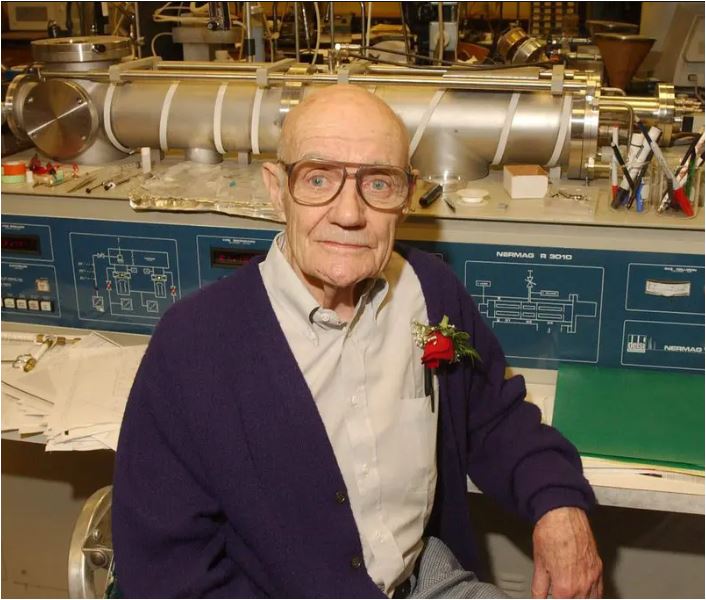John B. Fenn, an esteemed American chemist, was awarded the Nobel Prize in Chemistry in 2002 for his groundbreaking contributions to the field of mass spectrometry, specifically for the development of the electrospray ionization (ESI) technique. This prestigious recognition was a testament to his remarkable achievements and their profound impact on analytical chemistry. In this article, we will explore the reasons why John B. Fenn received the Nobel Prize and the significance of his research.

Based on the mass-to-charge ratio of molecules, mass spectrometry is a potent analytical method for identifying and characterizing them. Before Fenn’s work, mass spectrometry faced challenges in analyzing large and delicate molecules, such as proteins and biological macromolecules. Fenn’s pioneering research addressed this limitation and revolutionized the field.
Fenn’s key breakthrough came in the late 1980s when he introduced electrospray ionization (ESI) as a method to vaporize and ionize large molecules, enabling their detection and analysis by mass spectrometry. ESI involves the application of a high voltage to a liquid sample, forming charged droplets that subsequently release ions when subjected to a vacuum. This technique allowed the analysis of large molecules, including proteins, peptides, and nucleic acids, with unprecedented sensitivity and accuracy.
The impact of Fenn’s work on the scientific community and analytical chemistry was profound. The development of ESI made mass spectrometry an invaluable tool in various fields, including proteomics, drug discovery, and metabolomics. It revolutionized the understanding of biological systems, enabling the identification and characterization of complex biomolecules. ESI became a widely adopted technique, significantly advancing research in areas such as protein structure determination, protein-protein interactions, and the study of disease biomarkers.
The Royal Swedish Academy of Sciences recognized the significance of Fenn’s contributions and awarded him the Nobel Prize in Chemistry in 2002. The Academy highlighted Fenn’s development of electrospray ionization and its transformative impact on mass spectrometry. His innovative approach opened new avenues for the analysis of large biomolecules, revolutionizing the field and laying the foundation for countless scientific discoveries.
In conclusion, John B. Fenn’s remarkable achievements in the field of mass spectrometry, particularly the development of electrospray ionization (ESI), earned him the Nobel Prize in Chemistry in 2002. His pioneering work revolutionized the analysis of large biomolecules, providing scientists with an invaluable tool for understanding complex biological systems. Fenn’s contributions continue to shape the field of analytical chemistry and inspire researchers to explore new frontiers in the realm of mass spectrometry.




